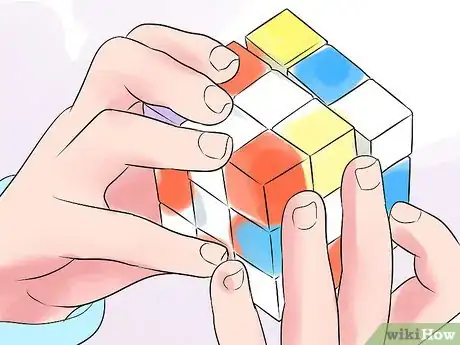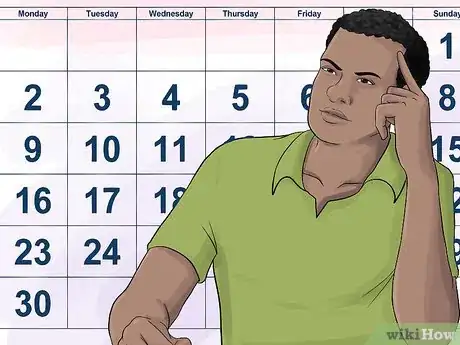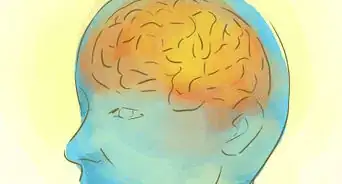This article was co-authored by wikiHow staff writer, Amy Bobinger. Amy Bobinger has been a writer and editor at wikiHow since 2017. She especially enjoys writing articles that help people overcome interpersonal hurdles but frequently covers a variety of subjects, including health and wellness, spirituality, gardening, and more. Amy graduated with a B.A. in English Lit from Mississippi College in 2011 and now lives in her hometown with her husband and two young sons.
This article has been viewed 3,635,974 times.
Learn more...
Intelligence isn't always something you're born with; you can make yourself smarter with a little bit of hard work! To be smart, exercise your brain with puzzles and creative tasks, develop your people skills, learn as much as you can about as much as you can, and continually strive to broaden your horizons by keeping an open mind and stepping outside your comfort zone. Increasing your intelligence may seem difficult, but as long as you have an eagerness to learn, it's a very doable goal.
Steps
Exercising Your Brain
-
1Work on puzzles like the Rubik's cube. Doing puzzles like these will keep your brain working and increase your mental capabilities. Your brain is a muscle: you have to exercise it! Always listen to your brain and your mind.
- Sudoku is a great puzzle to try to solve and it expands your thinking. These can be purchased in books, are often printed in newspapers, and are easily found for free online.
-
2Do artistic activities. Creativity is a skill that can be developed.Drawing, sculpting, painting and other arts unleash your creative side and expand your problem-solving skills. A creative brain can think outside the box to find ways to get things done better and faster.[1]Advertisement
-
3Do math. Learn how to do mental sums or speed math. The hard thinking that is required for math will make your brain work hard and help develop the connections that will help you think better and faster.[2]
-
4Write stories or poetry. Creative writing forces your brain to work on inventing situations and dialogue, characters and environments. This will make you a better thinker and help you process information. Using language like this will also improve your vocabulary and speech. Writing is also a fantastic way of expressing yourself and your thoughts.[3]
Developing Your People Skills
-
1Simplify. Talking about things that no one else can understand does not make you smart. Genius is the ability to translate the complex into the simple. Practice explaining concepts to others. See just how simple and clear you can make your explanations.
-
2Learn to listen carefully to others' opinions about controversial things or things they know about and you do not. You do not have to agree with them but remember everybody has something to teach you. Asking questions may allow you to re-evaluate your own beliefs, or point out the flaws in theirs. Keep an open mind. The more intelligent you are the more questions you will ask of the people around you.
-
3Be nice to people. Practicing kindness in the face of challenges is a sign of maturity, class, and intelligence. Remember that you also have a lot to learn from other people. Being kind to them will allow you access to their lives and experience. Who knows what you might learn?
Educating Yourself
-
1Aim to educate yourself. Keep in mind education isn't the junk you are forced to do in school for diplomas and degrees; it's an understanding of the world around you. People who are naturally curious for some reason begin to stop asking questions the moment they hit school. The truly brilliant mind, however, always questions their world and tries to make sense out of it. That is the secret to "genius".
- Try teaching yourself. You can even learn from your life experiences, sometimes called "unschooling".
-
2Work on your vocabulary. Use a few definitions from the dictionary each day, or subscribe to a "word-of-the-day" service online. You can also take the vocabulary tests in Readers Digest or buy a book on increasing your working vocabulary. Read the dictionary one word at a time. Every word you learn will grow your vocabulary. This will take you at least a year but you will grow intellectually.
-
3Read a variety of books. Reading is a productive hobby to have and can help you learn all kinds of new things. You may not always enjoy it, but reading will open up your mind to a variety of new ideas and experiences. Browse whatever books you find interesting and insightful. Many people recommend reading every day.[4]
-
4Educate yourself about the world around you. Cultivate an interest in subjects like current events, interesting facts, funny and inspiring quotations, good books and movies, scientific studies and interesting inventions. Educational television, like PBS, is a great way to learn. Learning to think critically about the world around you by being aware of cause and effect in events will make you much smarter.
- If you can read much faster than you can speak, it is much more efficient to read a book, or better yet a non-linear electronic document like a wiki than to watch a show for all but the most intellectually demanding or video-dependent learning. Commercial television is particularly bad because its ultimate purpose is to do just enough to keep you at the TV and its ads, not satisfy you so you can do something else.
-
5Make connections. Find uses for information, rather than just collecting useless trivia. Burying information somewhere deep in your brain is not useful; you have to be able to access it in situations. Think of situations in which a piece of information will make sense. Then share it and watch it grow!
Developing Good Habits
-
1Ask questions often. Asking questions and questioning everything around us constantly is what makes us smarter. There's nothing wrong with not knowing the whys or the hows! Everybody has something that they don't know. But by developing a healthy habit about asking when you don't know something, you'll find yourself getting smarter and smarter.
-
2Set goals once a week. Ask yourself during each goal-setting session, how many of last week's goals did I achieve? Why didn't I accomplish some of my goals and what can I do to give myself a greater chance of success[5]
- Constantly work hard to achieve each of your goals. Without goals, you would have nothing to hope for. Reward yourself after accomplishing your goal.
- Be organized. You don't need to be a total neat freak, but wasting time is not smart. Of course, many geniuses are completely disorganized (think of the absent-minded professor) but if you're making an active effort to be smart, taking a conscious approach to how you spend your time is a big step in the right direction.
-
3Devote time to education. Educating yourself takes time, and if you want to get smarter it is going to require effort. Don’t expect it to happen overnight. You need to spend a lot of time actively thinking and learning if you want to really be smart.
-
4Always learn. There are many sources of information out there. For example, books, documentaries, and the internet. School is just one source of information. If you have straight A's, that doesn't mean that you are smart. Exercising an open mind will make you more intelligent and constantly learning will help you get there.
Expanding Your Horizons
-
1Learn a new language. Apart from being a linguistic exercise, it may bring you into contact with new people and ideas. You may feel less of a stranger when you visit a place and you know some of the language. Also, at some point you will realize that there are some phrases or concepts in other languages that have no direct translation in English! This can be a challenging and fun exercise for the mind. (Note, try to be patient and positive when studying a language as it may take time to reach the level you desire.)[6]
-
1Visit new places as much as you can. Try to visit other countries too. Visiting cities in your country or in a different one gives you an open mind and teaches you about the universe. You will be able to understand other cultures (how people live in a different place, how they behave with each other). You will also be able to understand that there is so much to see and do anywhere. You will be fascinated by how there are so many different people and cultures in the world. That will make you smart and interesting.
-
2Be open-minded and willing to learn new things. Just because you're great at one thing doesn't mean you have to stick to it! Find ways to step out of your comfort zone. This is where the learning happens.
Warnings
- Don't put yourself down. When you do this, you begin to believe that you're not smart and this can turn into a self-fulfilling sense of "giving up". Tell yourself you can do it, even if it requires effort and time.⧼thumbs_response⧽
- Don't become a know-it-all, do-it-all, or argumentative. It is obnoxious! It is better to be subtle, not obvious.⧼thumbs_response⧽
- Know your limits, take a break every now and then to reassess yourself and the manner of completely achieving your primary goal.⧼thumbs_response⧽
References
- ↑ https://journals.plos.org/plosone/article?id=10.1371/journal.pone.0101035
- ↑ https://www.pnas.org/doi/10.1073/pnas.2013155118
- ↑ https://www.psychologytoday.com/us/blog/trouble-in-mind/201304/creative-writing-and-your-brain
- ↑ https://www.sciencedirect.com/science/article/abs/pii/S0277953616303689
- ↑ https://positivepsychology.com/goal-setting/
- ↑ https://www.icls.edu/exercise-your-brain-with-language-learning/
About This Article
If you want to be smart, exercise your brain by doing puzzles, like the Rubik's cube or Sudoku, and challenge yourself to participate in artistic activities, like painting, drawing, or sculpting. Work on getting better at mental math and speed math, and try your hand at writing stories or poetry to strengthen your creativity and vocabulary. Read books that are interesting to you, and pay attention to current events. Don't be afraid to ask questions often, and connect things that you already know to new information that you've learned. For tips on strengthening your people skills and learning about new subjects, read on!














































































